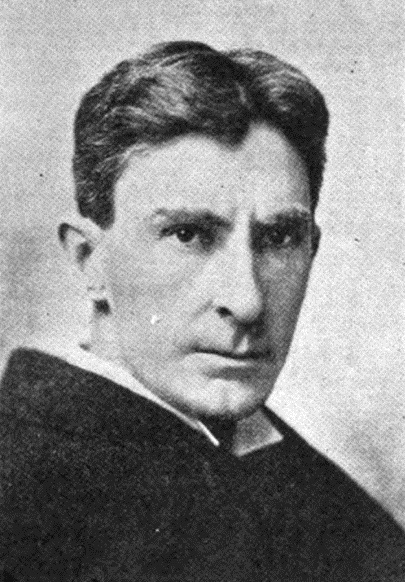
Back in 2014, there was a controversy in Arizona surrounding John Huppenthal, then the state’s Superintendent of Public Instruction. It was alleged, and subsequently confirmed, that Huppenthal pseudonymously posted a bunch of comments—variously characterized in the media as harsh, inflammatory, and even racist—on various political websites over the course of several years. Darwin was apparently among Huppenthal’s targets. The Arizona Republic reported that in 2013, he posted, “It was Darwin, not Hitler, who named Germans the master race…It was Darwin who expressed approval of eliminating both Jews and Africans.” Huppenthal subsequently admitted to making the comments and offered a quasi-apology: “I sincerely regret if my comments have offended anyone.” It apparently wasn’t enough to mollify his constituents: he was defeated in his bid for the Republican nomination for superintendent in 2014 and was duly replaced by Diane Douglas in January 2015.
Huppenthal’s mention of Darwin attracted my attention in 2014, but his comment was so inane that I wasn’t able to muster any interest in blogging about it. I was interested, however, in a claim, found in a comment on a report on the controversy, that in one of his pseudonymous outings Huppenthal quoted the following viciously racist passage:
Since the dawn of history the Negro has owned the Continent of Africa—rich beyond the dream of poet’s fancy, crunching acres of diamonds beneath his bare black feet. Yet he never picked one up from the dust until a white man showed to him its glittering light. His land swarmed with powerful and docile animals, yet he never dreamed a harness, cart, or sled. A hunter by necessity, he never made an axe, spear, or arrow-head worth preserving beyond the moment of its use. He lived as an ox, content to graze for an hour. In a land of stone and timber he never sawed a foot of lumber, carved a block, or built a house save of broken sticks and mud. With league on league of ocean strand and miles of inland seas, for four thousand years he watched their surface ripple under the wind, heard the thunder of the surf on his beach, the howl of the storm over his head, gazed on the dim blue horizon calling him to worlds that lie beyond, and yet he never dreamed a sail! He lives as his fathers lived—stole his food, worked his wife, sold his children, ate his brother, content to drink, sing, dance, and sport as the ape!
According to the commenter, Huppenthal attributed the passage to Darwin. The strategy of portraying Darwin as a vicious racist certainly chimes with the authenticated comments from Huppenthal reported in The Arizona Republic, but I was unable to find any evidence that Huppenthal in fact posted such a comment, so I let it go.
I was a little disappointed to let it go, though. I’ve been aware of the misattribution for a long time, but I’ve never been able to find it in a published source, and I found it hard to convince myself that it would be worthwhile to discuss it in detail in the absence of a published instance to examine. (I don’t advise that you search on-line for instances of the misattribution, because what you’ll find is plenty of white supremacist websites.) But I now feel entitled to devote a little time to it, because someone recently saw fit to post it as a comment on NCSE’s Facebook page. Replying to the comment there, I cut to the chase, saying (I quote from memory): “The passage you quote is not from Darwin; it is from Thomas F. Dixon Jr.’s novel The Clansman (1905).” (If brevity were not so valuable in Facebook comments, I might have added the subtitle of the book—An Historical Romance of the Ku Klux Klan—or observed that the novel was the basis for D. W. Griffith’s 1915 silent movie The Birth of a Nation.) There was no reply.
Since the text of The Clansman is available on-line, and since Darwin’s works and letters are largely available on-line, it seems to me that today it would take a diligent act of will to avoid the evidence that Darwin didn’t, and Dixon did, write those hateful words. (In the novel, the words are spoken by Richard Cameron, a doctor who is the father of the hero Ben Cameron, who becomes the Grand Dragon of South Carolina’s Ku Klux Klan, as he argues with the villain, Austin Stoneman, a Radical Republican member of Congress who moved to South Carolina for his health. It seems clear that they represent Dixon’s own views as well.) Even without the texts at hand, anyone with a familiarity with Darwin’s writing would surely recognize that the passage is more overwrought and purple than anything Darwin ever produced. And of course, as Adrian Desmond and James Moore document extensively in their Darwin’s Sacred Cause (2009), Darwin was remarkably progressive for his time on matters of race: the misattribution is ridiculous on its face.
By the way, although the white supremacist websites that misattribute the passage from The Clansman to Darwin are apparently eager to claim the imprimatur of evolution for their racism, the actual author of the passage wasn’t crazy about evolution. Before he started to write novels, when he was serving as a Baptist pastor in New York City, Dixon (above) wrote Living Problems in Religion and Social Science (1889), according to which, “Even granting, for the sake of argument, that evolution is an established scientific fact, the working hypothesis of the theory of evolution involves three miracles.” To accept evolution, in his view, is to accept three unexplained, indeed unexplainable, and thus miraculous transitions: from non-life to life, from “the vegetable” to “the animal,” and from “the whining brute” that is the monkey to “the proud, erect, God-like man.” So I’ll end in the style of a political advertisement, if I may: Thomas F. Dixon Jr.: wrong on race, wrong on evolution, wrong for America.

